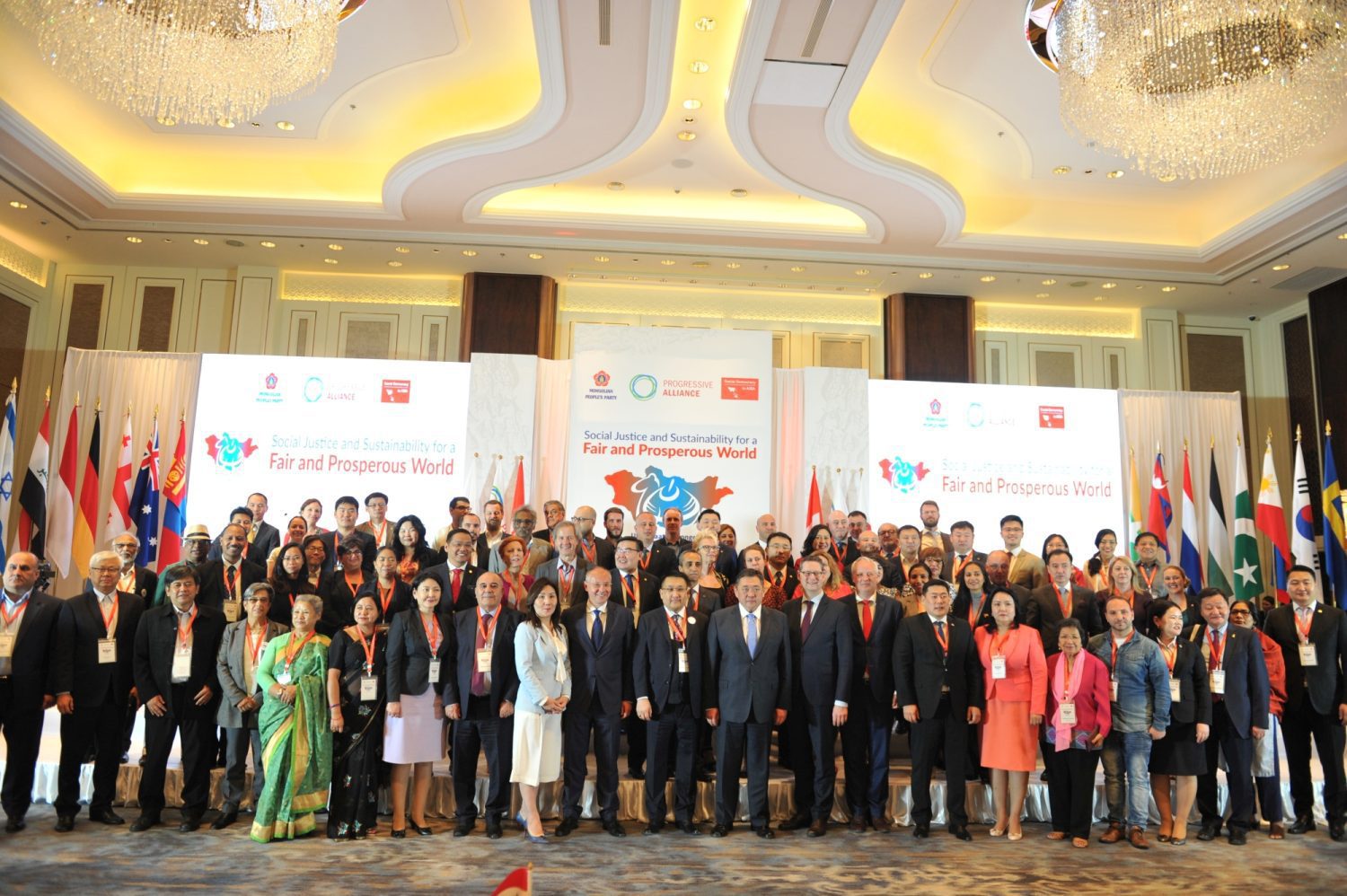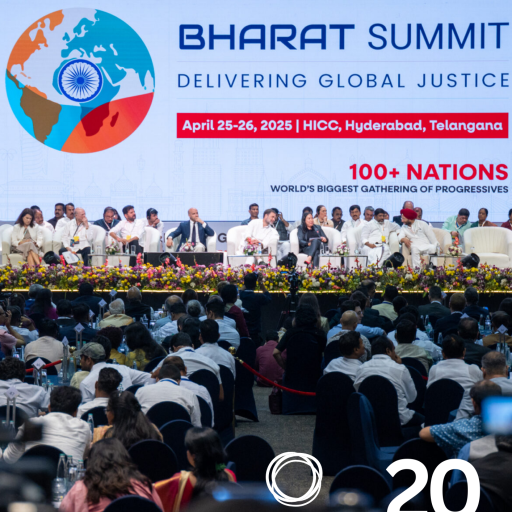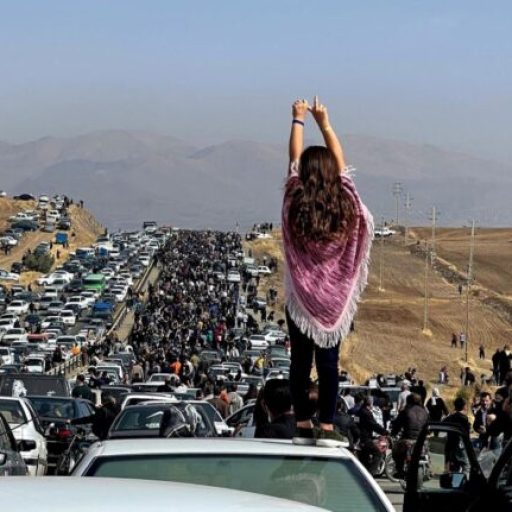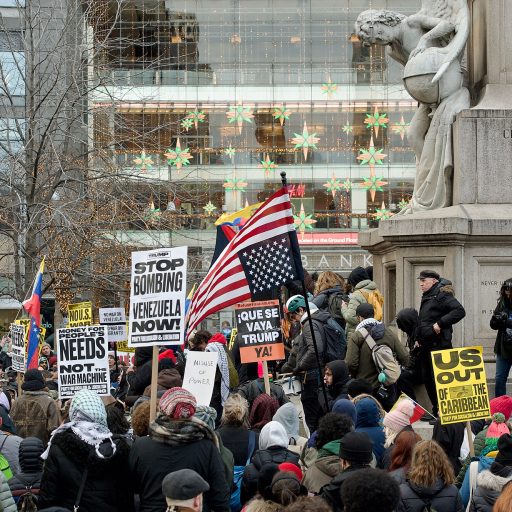1. Shaping Our Future
It is the social democratic, socialist and progressive parties that must take up the fight for the future, a future that begins now. This is a fight for a global social and ecological transformation that brings everyone’s right to a decent life into harmony with the limits of our planet, and puts common goals, rather than individual problems, at centre stage again.
The spectrum of challenges is huge: they range from food security, social inclusion, the future of work, health, migration and gender equality, infrastructure changes, environmental, marine and climate protection, regulation of the financial markets and international trade and investment, right through to the establishment of efficient and transparent local and national institutions and of regional and global governance and security structures.
Admittedly, every issue is important. But socialists and social democrats in the Progressive Alliance will need to pool forces and concentrate first and foremost on specific projects regarding democracy, social justice and sustainability. The new global Sustainable Development Agenda (Agenda 2030) with its far-reaching objective of political change towards social and ecological transformation, provided social democracy with a distinct global reference framework.
2. Democracy and Social Justice
In the past six decades, the importance of democracy as a political concept and system of government has increased significantly throughout the world. Mongolia gives an inspiring example for a peaceful and sustainable transformation to democracy. Globally, democracy still enjoys a high level of approval as the standard form of government, but it is far from certain that the situation will stay that way. Nowadays, everyone is talking about the “crisis of democracy” – and this discussion is not totally unfounded. Further progress of democracy has been blocked in many countries.
This development is accompanied by increasing social uncertainty. There are many reasons for this insecurity: the fear of social decline and a powerful sense of injustice, for example, regarding the unsound compromise between democracy and capitalism. Many people have the impression that the promises of modern society with regard to safety and security, based on the expectation of never-ending improvement and of continuous social progress, have not been fulfilled.
The main reason that social issues have returned to the focus of social discussion in many countries is that inequality has increased significantly within many societies. At the same time only one per cent of the world’s population owns more than the other 99 per cent together. The trend towards greater inequality and the structures that support it can no longer be denied, nor can the consequences.
Inequality makes it harder to combat poverty and often prevents the establishment of neutral, well-functioning institutions. It cements unequal social power relations and opportunities, undermines democracy and political stability and intensifies alienation within society. Today, many people already consider this huge inequality to be unacceptable and unjust.
The accumulation of economic power goes hand in hand with political influence. This is demonstrated not only by the huge influence that the lobbies have on the legislative process, but also by the ruthless business practices of transnational corporations in many developing countries. As with economic power, elitism in the political sphere still continue in many countries where people participation in the affairs of state and economy is marginal. Consequently, more and more people feel that they are being excluded from social progress and that state institutions and other responsible parties neither represent them adequately anymore, nor take their fears and needs or personal biographies into consideration. For our parties and movements, our values and critique to this elite accumulation along with growing distrust of people are the basis for formulating innovative and bold plans for the future.
Additionally, in many countries the question of social justice is influenced by a comprehensive environmental crisis due to climate change, the pollution of large parts of the biosphere, and urbanization. Those that are affected worst are often not the main culprits. The industrial countries pass on the increasing environmental costs of their prosperity to the countries of the South e. g. by means of cheap breaking-up of ships in India and Bangladesh. The integration of a number of developing countries, as raw material suppliers, into global trade continues to lead to a redistribution of the environmental pollution caused by extraction and on-site processing of mineral resources.
In Mongolia climate change recently exacerbated a periodic weather phenomenon which creates summers that are unusually dry, followed by spells during the winter that are unusually cold. Millions of livestock are killed, thousands of the most vulnerable herders lose their livelihood and are forced to migrate with their families to urban areas – and by doing so increasing social and infrastructural tensions. The rapid growth of Mongolian cities causes severe air pollution thus endangering the health of its citizens.
That political action can address all of those issues and thus creating more social justice has been demonstrated by countries in different regions of the world. For the future constitution of the world, therefore, the crux will be to remedy the structural causes of this development.
3. Inclusive and Sustainable Growth
Globalization as the general trend of national and international politics is the key frame of reference for relations between economy, politics and society. For decades now, governments, global institutions and international forums have euphorically celebrated globalization. They claimed that innovation, deregulation of the financial markets, the unleashing of market forces, technological networking and a better exchange of know-how would not only usher in new growth, but also level out differences in the global economy and reduce inequality. For a long time, things went well for the advocates of this form of globalization. In addition, the neo-liberal strategies also assumed the character of an economic and political orthodoxy that gave economic processes a higher meaning. This meant that other goals – social, ecological and democratic – were to be subjected to market processes and stability policy, and growing inequality was to be accepted as the price for freedom in times of globalization.
This silent consensus has come apart at the seams. Now that the social consequences and the one-sided benefits brought about by this economic model have become apparent, its appeal has started to evaporate, as has faith in its ability to provide prosperity for more than just the “one per cent”. It is now becoming clear that there was never any coherent growth perspective for a majority of the developing countries. For most of them, world market integration meant, first and foremost, better access to resources and labour by the established industrial nations and a number of large emerging economies.
The effects of the crisis are also noticeable on the global labour markets: Around the world, the number of unemployed increased to 197 million (2015), which is 27 million more than before the financial crisis of 2008. Worldwide, 45 per cent of young people who are fit for work are either unemployed or live in poverty despite having a job. Taking the latest demographic trends into consideration, roughly 420 million new jobs will be needed across the world by 2030.
Supporting the struggle for decent work around the world is one of the key tasks of social democratic, progressive and socialist parties. With regard to the quality of working conditions, decent work is little more than a dream for many people, and not just for the 21 million subjected to forced labour. Approximately 830 million people are considered to belong to the “working poor”, who have to make do with less than two US dollars a day. Women are paid worse, have less security and still perform the lion’s share of unpaid family work. Especially in the developing countries, a large proportion of the population is employed in the so-called “informal economy”, where productivity is low, poor working conditions prevail, unfair wages are paid and social insurance is completely lacking. Only a quarter of the world’s population has some form of social insurance.
Social democratic, socialist and progressive parties must maintain the projects of “decent work throughout the world” and continue to make this their stated goal on their future agenda. What working people need are:
- Sustainable work: Sustainable work means that an individual is able to engage in sensible and safe activities as part of a sustainable value-creation process in the economy and society and can earn enough to afford a decent and fair livelihood. The key elements of an employment strategy are therefore: definition of the objectives of employment and work; a stable macro-economic environment; growth in sustainable sectors that creates jobs; innovative education, learning and qualification campaigns to accompany transformation and digitalisation of the world of work; new regulatory frameworks for those in informal employment; better access to loans for small and medium-sized enterprises; and a focus on the areas where the poor live and work (e.g. in agriculture).
- Rights: Decent work is based on fundamental rights. The freedom of association, free collective bargaining and the right to enter into collective agreements, the abolition of forced labour and child labour, prohibition of discrimination at work and the obligation to pay equal wages for equal work. It is essential to ensure human rights globally and at all levels, to ensure minimum wage policies, either by law or collectively bargaining, to introduce living wages and social security for all, enabling people to cope better with personal and economic crises.
- Participation: It is essential to strengthen democracy and participation at the workplace in the coming years. The most direct way is to introduce some form of solidarity economics, self-managed enterprises and production cooperatives. In other types of companies, participation in management must be extended to include work organisation issues such as the sovereignty over one’s own time. In many cases powerful and free trade unions will be needed if progress is to be achieved. We need a new concept of solidarity that is no longer based on a geographic location and homogeneous communities, but which is modeling the many heterogeneous manifestations of work all along the value-added chains and migration networks.
If we want to make economic development more sustainable, to strengthen confidence in politics and within societies, to reduce inequality and to focus economic processes on the needs of the people, then politically taming the international financial market and fiscal policy as a shaping force and efficient taxation systems have to be at the top of the agenda.
- Restraining and restructuring the finance markets includes: regulating shadow banking in order to prevent individual business fields being farmed out to unregulated sectors; putting an end to state liability; establishment of a separated banking system; prohibiting risky operations and speculation with agricultural commodities, fuel and energy; regulating high-frequency trading; reforming the business models of the rating agencies; and massive extension of supervision instruments. It must also be made quite clear that anyone involved in money laundering or assisting with tax evasion can expect legal consequences under criminal law. Considerably stricter and better equity capital requirements must be established, especially for all financial institutions that might get entire national economies into trouble in times of crisis. Another measure that definitely and finally needs to be implemented is financial transaction taxation – an issue that has been agreed upon several times over.
- Fiscal policy as a shaping force and efficient taxation systems are in a number of ways vital to a successful transformation: first, they can mobilise much-needed financial resources, and second, the taxation system helps us achieve fairer distribution of income and wealth within our society. Taxes can be used to promote politically desirable projects, to make undesirable activities more expensive, and to influence consumption and production decisions. Last but not least, we could reshape taxation systems so as to permit greater democratic control and a stronger rule of law – after all, tax payers are entitled to demand that governments account for the money put at their disposal. This is why setting up national taxation systems and mutual support in such activities is so important, especially in developing countries. But this is still not enough: we have to continue improving international cooperation in matters of taxation. After all, business and the economy went international a long time ago. Social democrats and socialists are committed to: putting an end to the ruinous race for rock-bottom tax rates by bringing transparency into the incentives offered to multinational corporations and by outlawing harmful taxation practices; introducing effective minimum thresholds for corporate taxation and consolidated global taxation for multinational groups, and ensuring that these are internationally accepted over longer periods; obliging companies to disclose country-specific data as part of their reporting practice, so that anyone can understand how and where corporations pay taxes; consistently blocking tax havens, for example, by closing the loopholes in criminal procedure, especially with regard to the banks, and barring tax havens from participation in the international financial system. In all cases, it is important to involve the countries of the Global South.
4. Future Perspectives
In present-day global capitalism, the old social issues have simply returned in a new guise. Then as now, it is all about struggling to establish social rules for the markets in order to stop brutal, ruthless exploitation. It is also about securing and defending the democratic substance of our societies.
We are not questioning what globalization has achieved here. But these successes do not tell the whole story. If the price of the successes of globalised capitalism means giving up the standards of civilization that protect our natural and social environment from the excesses of economical exploitation, then it is too high.
Social democrats respect diversity and differences in identities. We uphold equal rights for all that cut across location, economic status, beliefs, gender, language and race. This encompassing view on equal rights is our commitment to uphold human dignity. Through pluralism, active citizenship governed by democratic values and progressive politics, we will continue to work for a society that is productive and peaceful.
People have always tried to convince progressive and social democratic forces that the existing order cannot be changed. But we have never let ourselves be robbed of our sense of justice. We have always fought for just and social coexistence regardless. In uncertain times in the past, one could always rely on progressive political forces whenever it was necessary not just to convince people of a better future, but to actively make it happen. We have to build on this strength again if we are to provide solutions for the tasks that lie ahead. Globalization is not simply a fate to which we must all resign ourselves. We can shape the interaction of politics, the economy and society to serve the interest of the people, provided that a powerful movement supports this transformation.





![Headline: Hier bitte das Thema [ Headline] 24.10.25, Lucerne, Switzerland, Progressive Alliance PA women conference](https://progressive-alliance.info/wp-content/uploads/elementor/thumbs/MAW251024mw859033AdobeRGB-scaled-recq0qxu9kb6pncdi2i7wo6ttne03ppnu58zxxdc74.jpg)
![Headline: Hier bitte das Thema [ Headline] 25.10.25, Lucerne, Switzerland, Progressive Alliance PA women conference](https://progressive-alliance.info/wp-content/uploads/elementor/thumbs/MAW251025mw860402AdobeRGB-scaled-recs8kegm3kqlleif2kq512xsjz2qfl3t7kc0t0tts.jpg)